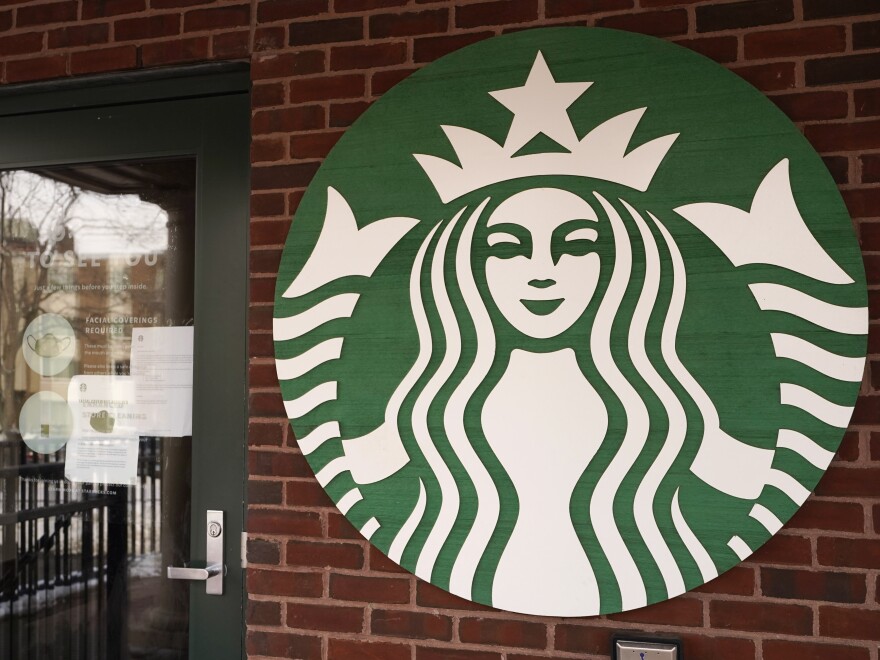Starbucks is facing a fast-growing union campaign just weeks after the first U.S. corporate store unionized in Buffalo, N.Y.
Employees at 54 stores in 19 states are pursuing union elections, according to organizers. Fifteen of those stores joined the union drive on Monday, petitioning the federal labor officials to set a vote. The filing coincides with the start of contract negotiations between Starbucks and unionized workers in Buffalo.
Last month, Starbucks workers at three New York stores held union elections. A majority voted in favor at two of the three locations, unionizing 64 workers. Now, some 30 Starbucks workers in Mesa, Ariz., are wrapping up their own union election by mail. Employees at three more Buffalo-area locations also begin voting this week.
Altogether, the union-election push affects only a fraction of almost 9,000 U.S. stores run by Starbucks. But the quick and high-profile first union victory in Buffalo became a watershed moment for the company, especially as restaurant workers are among the country's least unionized.
As the union push spreads, labor experts say it will be harder for Starbucks to fight each one individually. They also say the high profile of Starbucks helps raise union awareness among regular Americans at a time when union membership has matched historic lows.
In the coming weeks, another potentially groundbreaking union push will proceed at Amazon, where thousands of Alabama warehouse workers will re-vote on unionization and their colleagues on Staten Island may hold their own union election.
At Starbucks, the pro-union workers have advocated for better staffing, training and pay, seeking a direct line to company management. Buffalo workers have joined Workers United, affiliated with the massive Service Employees International Union.
Contract negotiations present the next challenges for the labor group, as collective bargaining agreements can take months to reach. In Canada, Starbucks workers reached a three-year contract with the company in June 2021 after voting to join the United Steelworkers in August 2020.
A Starbucks representative declined to comment on Monday's developments. In a December letter to staff, the company's North America president said "we do not want a union between us as partners" but added that the company would "bargain in good faith."
Hours before federal officials set the union vote for Buffalo stores, Starbucks announced it would raise its starting pay to $15 an hour and boost wages for staff employed longer than two years and five years, plus make changes to its training and scheduling.
In the past, the coffee chain has fought off organizing attempts in New York City and Philadelphia. In the 1980s, the United Food and Commercial Workers International Union for a while represented some Starbucks staff. That union still represents workers at some locations run by grocery stores and not directly by Starbucks.
In the ongoing union vote in Arizona, Starbucks filed an appeal with federal labor officials to block the vote tally, arguing that all locations in the area should vote in the union election, rather than one individual store. The company lost similar appeals during union elections in New York.
Copyright 2022 NPR. To see more, visit https://www.npr.org.





